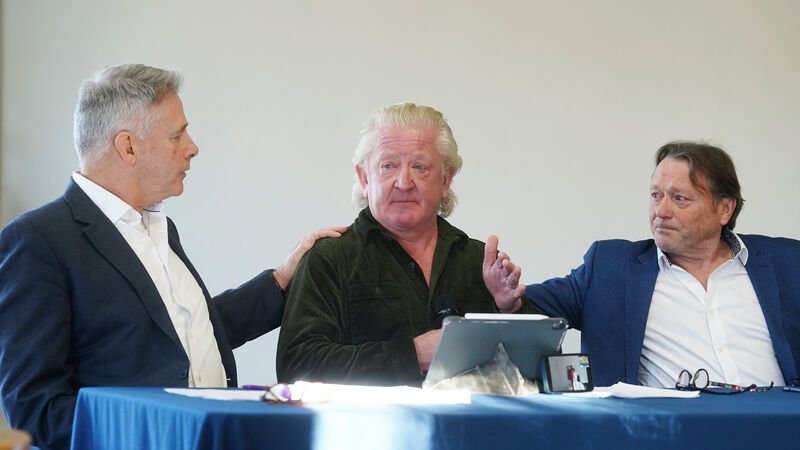Restorative justice: Survivor on how meeting her abuser put her in a position of power

Blackrock College past pupils, from left, John Coulter, Corry McMahon and Louis Hoffman, along with Philip Feddis joining via phone at a joint news briefing with the Spiritans in Ireland last week, where they announced a restorative justice process for victims/survivors of historical abuse at schools and institutions run by the Spiritan Congregation.
When Maria* faced the man who had abused her, she was adamant she would not let him see her cry.
Instead, she wanted him to see her in a position of power at last, able to outline how damaged her life and those of her family and friends were by his actions.











